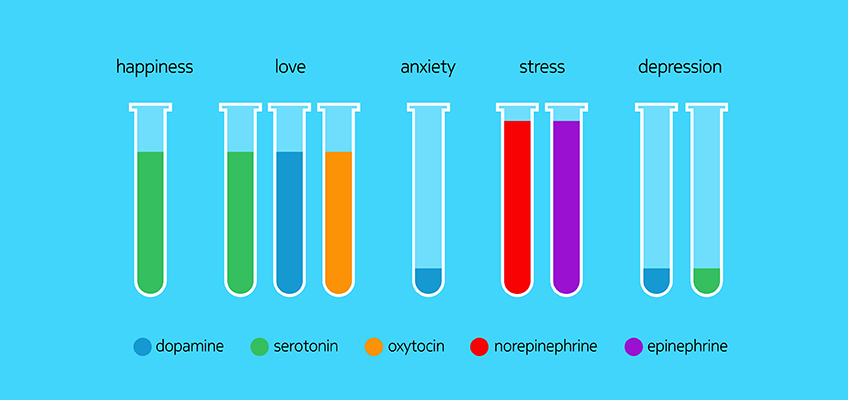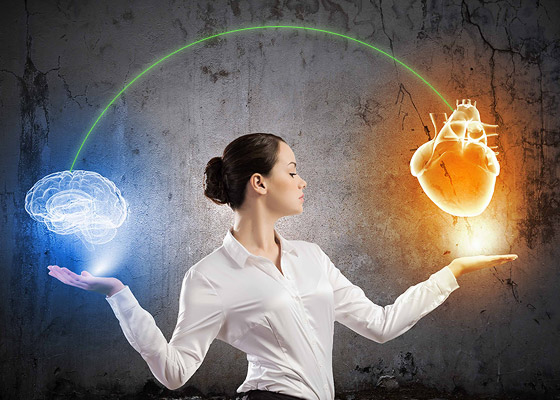
Be Generous, Do for Others: You’ll Be Happier
Will acts of kindness and generosity make us happier? Do heart-directed altruistic acts depend on the sincere intention behind them? When we act on behalf of other people, research shows we feel better and experience less stress.
Dr. J. Andrew Armour, a leading neuro¬cardiologist on HeartMath Institute’s Scientific Advisory Board, has found the heart contains cells that synthesize and release hormones such as epinephrine (adrenaline) and dopamine, among others. It was discovered that the heart also secretes oxytocin, commonly referred to as the “love” or “bonding” hormone. Remarkably, concentrations of oxytocin produced in the heart may be as high as those produced by the brain. When you are altruistic – lending a helping hand – your oxytocin level goes up, which helps relieve your stress. Altruistic behavior also may trigger the brain’s reward circuitry – the feel-good chemicals such as dopamine and endorphins. However, the hormonal benefits of the good deed depend on the genuine intent of the act of altruism.
Researchers Elizabeth W. Dunn, Lara B. Aknin and Michael I. Norton conducted an experiment in which they handed out envelopes to people. Each contained a five-dollar bill and a note. Some people were instructed to spend the money before 5 p.m. on a personal gift or for their regular expenses. Others’ were asked to spend it on a gift for someone else or donate it to charity. “Although much research has examined the effect of income on happiness, we suggest that how people spend their money may be at least as important as how much money they earn,” the authors wrote in an article abstract in Science magazine in 2008.
“Specifically, we hypothesized that spending money on other people may have a more positive impact on happiness than spending money on oneself. … Participants who were randomly assigned to spend money on others experienced greater happiness than those assigned to spend money on themselves.”
The Gallup World Poll found similar results in a 2006-2008 survey conducted in 136 countries, according to an article in the Greater Good newsletter at the University of California. “In 120 out of 136 countries, people who donated to charity in the past month reported greater satisfaction with life. This relationship emerged in poor and rich countries alike. … The link between prosocial spending and happiness seems to be remarkably universal.” (The Greater Good newsletter is part of the university’s Greater Good Science Center.)
More than leading to greater happiness, generosity, or altruism also makes us feel better, and it’s not merely a psychological effect. For example, levels of oxytocin, the so-called love or bonding hormone in the human body, have been found to increase with pure/sincere acts of generosity, or altruism. This increase in oxytocin not only makes us feel good, it has been shown to also reduce stress.
Moreover, researchers say, altruistic behavior also may trigger the brain’s reward circuitry – the feel-good chemicals such as dopamine and endor¬phins. They note, however, that hormonal benefits of altruistic acts depend on sincere intention.
Stephen G. Post, president of the Institute for Research on Unlimited Love, said he learned when he was a boy, about the power of giving.
“Sometimes,” Post said in his 2011 The Power of Giving, Compassion and Hope program at the Dalai Lama Center, “I’d have a boring, blue afternoon and my mother, with her kitchen-table wisdom, would always say, Stephen, why don’t you go out and do something for someone.”
When he did, he felt better, happier. “It always seemed to me self-evident,” Post said, “that one of the ways we can feel best about ourselves is by contributing in small ways to the lives of the people around us. As an unintended byproduct of generous behavior, we do experience joy, we do experience greater health and on average … we live even longer lives.” Multiple studies over the last two decades have borne out Post’s observations.
Volunteerism, another aspect of generosity and altruism, has received a great deal of focus by researchers, especially in the last decade. The result of volunteerism research has been fairly universal: People who volunteer are more often healthier, happier and live longer than those who don’t.
Do you know the personal benefits of helping others? The HeartMath Institute for many years has helped people learn to cultivate altruism through practice of its heart-focused techniques. These techniques help them to align themselves more fully with their core values and to activate greater care and compassion in their daily lives.
HeartMath’s own research has shown participants in experiments who practice these techniques have experienced beneficial changes in hormones that affect their health, happiness and longevity. Much like with its research on the benefits that come from positive emotions such as appreciation, compassion, care and kindness among others, HeartMath has found the following to be among the benefits of generosity and altruism:
- Lower stress.
- Improved emotional, physical mental and spiritual health.
- Increased self-esteem and confidence.
- Improved relationships.
Have you felt happier being generous? How has being generous – donating money or your time to help others – affected your life? If people were more giving, do you feel it would make things better in these troubled times?

